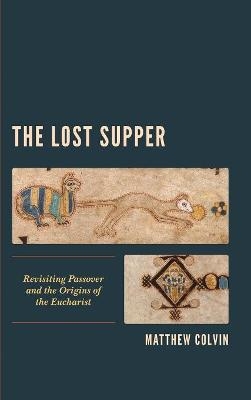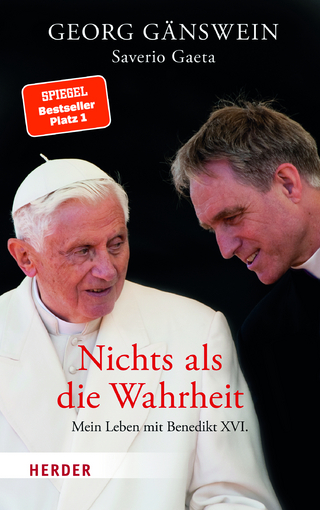
The Lost Supper
Revisiting Passover and the Origins of the Eucharist
Seiten
2019
Lexington Books/Fortress Academic (Verlag)
978-1-9787-0033-8 (ISBN)
Lexington Books/Fortress Academic (Verlag)
978-1-9787-0033-8 (ISBN)
In The Lost Supper, Matthew Colvin argues that Jesus did not create new symbolism with his words and actions at the Last Supper but, rather, invoked an already-existing Passover ritual. He therefore corrects assumptions, past and present, about how the Eucharist works and how we ought to celebrate it.
What did Jesus intend when he spoke the words, “This is my body”? The Lost Supper argues that Jesus’ words and actions at the Last Supper presupposed an already-existing Passover ritual in which the messiah was represented by a piece of bread: Jesus was not instituting new symbolism, but using an existing symbol to speak about himself. Drawing on both second temple and early Rabbinic sources, Matthew Colvin places Jesus’ words in the Upper Room within the context of historically attested Jewish thought about Passover. The result is a new perspective on the Eucharist: a credible first-century Jewish way of thinking about the Last Supper and Lord’s Supper – and a sacramentology that is also at work in the letters of the apostle Paul. Such a perspective gives us the historical standpoint to correct Christian assumptions, past and present, about how the Eucharist works and how we ought to celebrate it.
What did Jesus intend when he spoke the words, “This is my body”? The Lost Supper argues that Jesus’ words and actions at the Last Supper presupposed an already-existing Passover ritual in which the messiah was represented by a piece of bread: Jesus was not instituting new symbolism, but using an existing symbol to speak about himself. Drawing on both second temple and early Rabbinic sources, Matthew Colvin places Jesus’ words in the Upper Room within the context of historically attested Jewish thought about Passover. The result is a new perspective on the Eucharist: a credible first-century Jewish way of thinking about the Last Supper and Lord’s Supper – and a sacramentology that is also at work in the letters of the apostle Paul. Such a perspective gives us the historical standpoint to correct Christian assumptions, past and present, about how the Eucharist works and how we ought to celebrate it.
Matthew Colvin is a presbyter in the Reformed Episcopal Church.
Chapter 1 The Historical Project
Chapter 2 The Passover Background
Chapter 3 Evidence from Jews and Greeks
Chapter 4 Layers of Meaning
Chapter 5 Mechanics and Misinterpretations
Chapter 6 Rereading John 6
Chapter 7 The Festal Meal in Corinth
Chapter 8 Experiencing the Lord’s Supper Today
| Erscheinungsdatum | 25.09.2019 |
|---|---|
| Sprache | englisch |
| Maße | 160 x 229 mm |
| Gewicht | 458 g |
| Themenwelt | Religion / Theologie ► Christentum ► Kirchengeschichte |
| Geisteswissenschaften ► Religion / Theologie ► Judentum | |
| ISBN-10 | 1-9787-0033-4 / 1978700334 |
| ISBN-13 | 978-1-9787-0033-8 / 9781978700338 |
| Zustand | Neuware |
| Haben Sie eine Frage zum Produkt? |
Mehr entdecken
aus dem Bereich
aus dem Bereich
von Athanasius bis Gregor dem Großen
Buch | Softcover (2024)
C.H.Beck (Verlag)
12,00 €
eine Geschichte der christlichen Kunst
Buch | Hardcover (2024)
C.H.Beck (Verlag)
32,00 €


